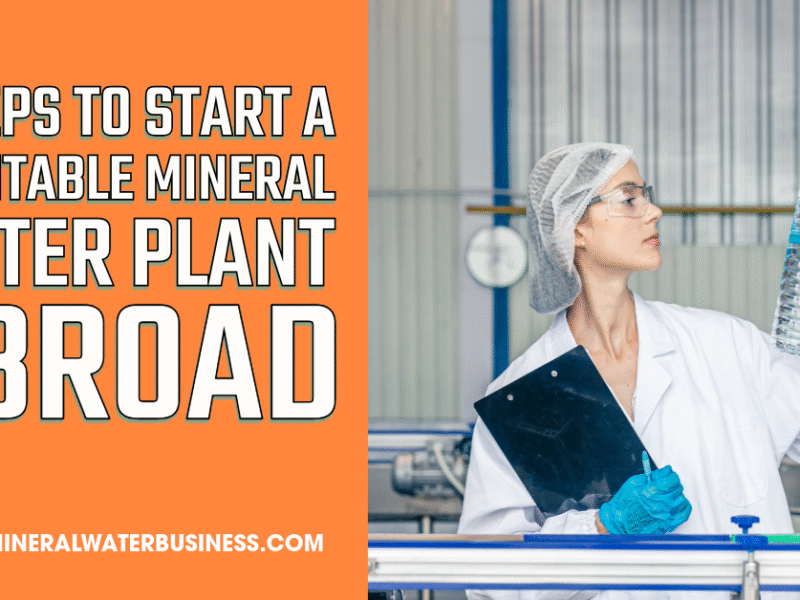
One of the best ways for business owners who want to get into the beverage business is to open a mineral water plant in another country. Investing in this sector can give you great returns while also meeting important consumer needs, since the demand for safe drinking water, bottled drinks, and packaged solutions is growing around the world.
At Mineral Water Business by KCE, we’ve helped business owners in Africa, the Middle East, and Asia build fully functional mineral water plants, juice processing lines, and carbonated soft drink (CSD) factories. Follow these steps to successfully open your plant in another country.
Step 1: Research Global Demand & Market Trends
Before investing, analyze:
- Countries facing water scarcity (e.g., Africa, Middle East).
- Local bottled water consumption rates.
- Competitor presence and gaps in distribution.
This helps you target high-demand regions where bottled water has strong growth potential.
Step 2: Develop a Business Plan
A solid business plan should include:
- Capital investment & financing options.
- Expected production capacity (small, medium, or large).
- Sales channels (retail, wholesale, export).
- ROI projection (usually 2–3 years).
Step 3: Obtain Licenses & Approvals
Each country has its own food and safety regulatory body. For example:
- NAFDAC in Nigeria
- KEBS in Kenya
- TBS in Tanzania
- SFDA in Saudi Arabia
KCE provides guidance on meeting these compliance requirements when exporting your plant abroad.
Step 4: Choose a Reliable Water Source
Getting a clean and long-lasting water source is key to the success of a mineral water plant in another country. Before you can use groundwater, borewell, or municipal water, it has to pass tests for purity and mineral quality.
Step 5: Invest in Modern Purification & Bottling Technology
Essential equipment includes:
- RO + UV + Ozone purification systems
- Automated bottling lines for bottles, jars, or sachets
- Juice production lines for value addition (juice processing machines)
- CSD production equipment for carbonated beverages (CSD processing equipment)
- Packaging machinery – conveyors, labeling, shrink wrapping, pasteurization tunnels (packaging solutions)
Step 6: Build a Strong Distribution Network
A good product needs the right market reach. Create partnerships with:
- Local distributors and wholesalers.
- Hotels, restaurants, and supermarkets.
- Online and retail channels for direct consumer access.
Step 7: Partner with Experts Like KCE
Mineral Water Business by KCE provides complete turnkey solutions including:
- Plant design, supply, and installation.
- Licensing guidance for international markets.
- Training for local staff.
- Long-term after-sales support.
By working with experienced partners, you minimize risks and ensure smooth setup and operations abroad.
FAQs
Q1. How much does it cost to set up a mineral water plant abroad?
Costs vary by country and plant size. Small units start around USD 35,000–50,000, while large automated plants can exceed USD 150,000.
Q2. How soon can I recover my investment?
Most investors recover costs within 2–3 years, depending on capacity and market demand.
Q3. Can I also produce juices or soft drinks with the same plant?
Yes, KCE offers modular solutions so you can expand into juice and CSD production alongside bottled water.
Q4. Do you provide installation and training abroad?
Yes, KCE provides global turnkey setup, installation, training, and after-sales support.
Q5. Why should I choose machinery from India?
Indian machinery is cost-effective, durable, and export-tested, making it ideal for international markets.
